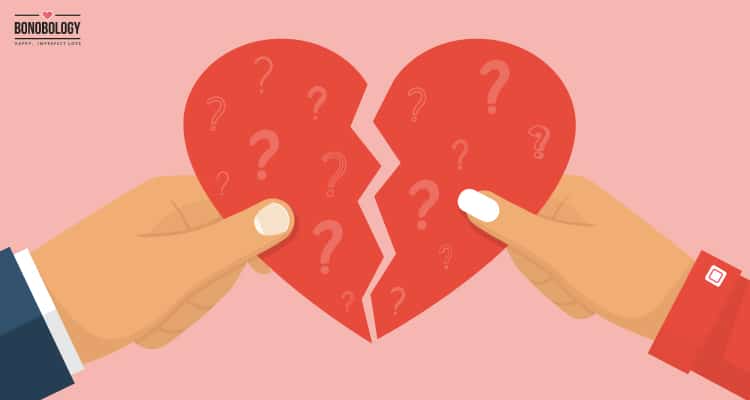Recent research has revealed intriguing insights into the connection between emotional stability and intimacy in relationships. This article dives into 20 detailed points explaining the complexities of personality traits and their influence on romantic connections. Each point is deeply explored to meet your request for comprehensive explanations.
1. The Profound Impact of Personality on Intimacy
Personality traits are among the most defining factors in any relationship, shaping how individuals approach and experience emotional and physical closeness. The German study on over 1,000 participants revealed that emotional stability, or the lack thereof, plays a pivotal role in determining the dynamics of a couple’s intimacy.
Partners with contrasting personality traits may ignite unique passions that are otherwise absent in more “stable” relationships. For example, emotional unpredictability can sometimes keep a relationship feeling fresh, exciting, or even challenging—factors that inadvertently fuel physical attraction. This notion goes against traditional views that harmony equals better intimacy, highlighting that unpredictability may introduce an unexpected intensity to the bond.
However, these findings don’t suggest that emotional instability is a positive trait. Instead, it demonstrates how human relationships can adapt to and even thrive in the presence of diverse emotional experiences. For many couples, balancing stability with moments of intensity allows them to navigate challenges and sustain physical attraction, creating a dynamic that feels unique to their bond.
2. Men’s Preference for Emotional Intensity in Partners
The study discovered that men, in particular, reported higher satisfaction in relationships where their partners exhibited lower emotional stability. While this might sound counterintuitive, it underscores a complex psychological interplay. Emotionally intense partners often express their feelings with heightened passion, which can manifest in the form of enthusiasm or excitement in intimate moments.
This emotional intensity may create a sense of unpredictability, keeping the relationship dynamic and preventing it from feeling monotonous. Men who are drawn to such relationships might find the heightened expressions of emotion to be alluring or engaging, as they spark a deeper connection during moments of intimacy.
Additionally, emotionally intense partners often challenge societal norms, bringing a sense of adventure or rebelliousness into the relationship. This trait, in turn, appeals to individuals who crave novelty or thrive in environments where emotions run high. However, navigating such relationships requires patience, understanding, and communication to maintain harmony and avoid conflict.
3. Emotional Instability and the Element of Mystery
One of the reasons emotionally unstable partners might seem appealing is the mystery they bring to a relationship. Emotional highs and lows can create an aura of unpredictability that some individuals find exhilarating. When a partner is emotionally complex, their actions and reactions often keep the other person guessing, which can enhance the allure of the relationship.
For many men, this unpredictability might stimulate their protective instincts or give them a sense of purpose in trying to “figure out” their partner. In the study, this dynamic was reflected in men reporting greater satisfaction in such relationships. The element of unpredictability keeps things exciting and can even foster deeper emotional investment, as the partner becomes more attuned to the other’s emotional needs.
However, it’s important to note that this dynamic can be a double-edged sword. While the sense of mystery might add excitement, it can also lead to misunderstandings or emotional strain if not addressed through open communication. Therefore, couples in such relationships must prioritize mutual respect and understanding to navigate the challenges posed by emotional instability.
4. How Emotional Traits Fuel Passion and Connection
Emotional traits such as neuroticism, agreeableness, and conscientiousness greatly influence the dynamics of physical intimacy. In the German study, researchers found that men with emotionally unpredictable partners reported higher levels of physical satisfaction. This suggests that emotional traits have a direct impact on arousal and connection.
For some individuals, partners who are emotionally intense may evoke stronger feelings of passion and urgency during intimate moments. This heightened emotional connection can lead to more fulfilling experiences, as both partners are more attuned to each other’s needs. The intensity of emotions may also create a sense of urgency or desire, enhancing the overall experience.
On the flip side, relationships involving emotional intensity require a great deal of understanding and patience. Emotional unpredictability can sometimes lead to conflicts or misunderstandings, which may strain the relationship if not addressed effectively. Couples who succeed in such dynamics often develop strong communication skills and a deep sense of empathy, enabling them to navigate challenges and maintain their connection.
5. The Allure of Intensity in Emotional Responses
One reason men may be drawn to emotionally unstable women is the intensity with which these women experience and express emotions. This can translate to heightened passion in the relationship, making every interaction feel significant. For men, this intensity can be exhilarating and unlike the steadiness found in emotionally stable partners. It gives them a sense of being deeply desired or needed, which can boost their confidence and self-worth.
However, such intensity comes with its challenges. While the highs of emotional engagement are exhilarating, the lows can be equally draining. For a man, this creates a cycle of anticipation, keeping him engaged in the relationship but also making it more difficult to maintain long-term stability. Understanding and navigating these intense emotional dynamics require emotional resilience and strong communication skills.
6. Emotional Volatility and the Thrill of the Unknown
Emotionally unstable partners often bring a sense of unpredictability into the relationship. This volatility can make the relationship feel exciting, as no two days are ever the same. For men, this element of surprise can keep the relationship from feeling mundane or routine. It’s the idea of “never knowing what to expect” that can make such relationships feel like an adventure.
At the same time, this unpredictability can also lead to stress and uncertainty. While the thrill may be appealing in the short term, it can also cause emotional exhaustion over time. Men may need to assess whether this excitement outweighs the emotional toll of dealing with constant volatility.
7. Emotional Dependence Fosters a Protector Role
Emotionally unstable women often display signs of dependency, seeking comfort, reassurance, or guidance from their partners. This dependence can create a dynamic where men feel valued and essential in the relationship. By stepping into the role of a protector or caregiver, they feel a sense of responsibility and purpose.
This dynamic can enhance a man’s self-esteem as he feels needed and capable of providing stability in his partner’s life. However, it’s crucial to maintain healthy boundaries in such situations to prevent the relationship from becoming one-sided or emotionally draining for either partner. Emotional support should be a two-way street to ensure long-term harmony.
8. Vulnerability Creates an Intense Bond
Emotionally unstable women often exhibit vulnerability, which can be deeply appealing to men. Vulnerability fosters intimacy, making men feel trusted and significant in the relationship. When a partner opens up about their emotional struggles, it creates an opportunity for men to step in, provide support, and strengthen their connection.
However, vulnerability needs to be balanced with emotional growth. While it’s endearing in the short term, long-term relationships thrive on mutual strength and stability. Men drawn to this aspect of emotionally unstable partners must ensure they encourage their partner’s emotional growth while maintaining their own well-being.
9. The Drama Factor and Emotional Engagement
For some men, the drama that comes with emotional instability is oddly engaging. The ups and downs, conflicts, and reconciliations make the relationship feel dynamic and alive. It’s a contrast to emotionally stable relationships, which may sometimes feel too predictable or calm.
While this “drama factor” can feel exciting initially, it’s important to recognize that healthy relationships require stability and mutual respect. Men who find themselves drawn to dramatic dynamics should consider whether they’re mistaking conflict for passion and whether the relationship truly fulfills their emotional needs.
10. The Challenge of Winning Their Trust
Emotionally unstable women often struggle with trust issues, making it a challenge for men to earn their trust. This challenge can feel rewarding for men who see themselves as problem-solvers or fixers. Successfully gaining trust from a partner who is emotionally guarded can feel like a major accomplishment, further deepening the bond.
However, the journey to building trust in such relationships can be long and arduous. Men must be prepared to handle setbacks and demonstrate patience, understanding, and consistency to foster a sense of security in their partner.
11. The Power of Emotional Intensity in Physical Intimacy
Emotionally unstable partners often express their emotions in intense and uninhibited ways, which can spill over into physical intimacy. This level of passion and energy can make the relationship feel deeply fulfilling for men, as it taps into a primal sense of connection. The heightened emotions create a sense of urgency and intensity that many find irresistible.
However, while this intensity can be thrilling, it may also mask deeper emotional struggles that need addressing. Building a healthy and balanced connection requires both partners to navigate their emotional dynamics thoughtfully and work toward mutual understanding and stability.
12. Heightened Expression of Love and Affection
Emotionally unstable women often express their love and affection in grand, overt ways. Their gestures, whether small or large, come from a place of deep emotion and can make their partner feel special and appreciated. For men, this kind of attention can be flattering and addictive, making them feel deeply loved and desired.
However, it’s important to ensure that these expressions of affection are rooted in genuine love and not an attempt to overcompensate for insecurities. Both partners need to cultivate a balanced and healthy way of expressing their emotions to build a sustainable relationship.
13. The “Fixer” Complex in Men
Men are often drawn to emotionally unstable women because they feel they can help “fix” their partner’s problems. This dynamic can give men a sense of purpose, as they feel needed and valued for their ability to provide support and stability. It reinforces their sense of masculinity and allows them to play the role of protector or savior.
However, it’s essential for men to recognize that they cannot “fix” someone else entirely. True growth and healing must come from within the individual. Relationships thrive when both partners are committed to personal development and mutual support, rather than relying on one-sided efforts.
14. Emotional Unpredictability Enhances Excitement
Emotionally unstable women often have unpredictable reactions and emotions, which can add an element of excitement to the relationship. For men, this unpredictability may feel like a constant adventure, keeping them engaged and intrigued. It’s the feeling of never knowing what’s coming next that makes the relationship feel lively and spontaneous.
However, over time, this unpredictability can lead to emotional exhaustion if it isn’t balanced with moments of stability and calm. Men must assess whether they’re drawn to the excitement for the right reasons or if they’re overlooking the potential emotional toll of such dynamics.
15. The Complexity of Emotional Dependency
Emotionally unstable women often form deep emotional dependencies on their partners, which can make men feel valued and indispensable. This dependency can create a strong bond, as men feel needed and trusted in ways they may not have experienced before.
However, emotional dependency can also become unhealthy if it isn’t balanced with independence and mutual respect. Men should encourage their partners to develop emotional strength and autonomy while maintaining their own sense of identity within the relationship.
16. The Appeal of a “Passion-Fueled” Relationship
Relationships with emotionally unstable women often feel passion-driven, where every interaction is infused with emotion. For men, this intensity can make the relationship feel deeply fulfilling and meaningful. The highs of such relationships often create unforgettable memories and experiences.
However, it’s important to ensure that passion isn’t mistaken for love. True love involves stability, trust, and understanding, alongside passion. Both partners need to work together to balance emotional intensity with long-term compatibility.
17. Emotional Highs Create Addictive Cycles
The emotional highs that come with being in a relationship with an unstable partner can be addictive for some men. These highs often follow moments of conflict or emotional tension, creating a cycle of drama and reconciliation that feels rewarding.
However, this cycle can be damaging in the long run. Men should evaluate whether the relationship is truly fulfilling or if they’re caught in an unhealthy pattern of emotional dependency. Building a stable and healthy relationship requires breaking free from such cycles and fostering open communication.
18. The Challenge of Understanding Their Emotions
Emotionally unstable women often experience complex and intense emotions, which can be difficult for their partners to understand. For men, this challenge can feel like a puzzle to solve, keeping them engaged and invested in the relationship. The process of learning about their partner’s emotional world can deepen the connection and foster empathy.
However, it’s essential to recognize that emotional understanding is a two-way street. Both partners need to make an effort to understand and support each other’s emotional needs, rather than placing the burden solely on one person.
19. The Role of Emotional Healing in the Relationship
Relationships with emotionally unstable women often involve an element of emotional healing. For men, this dynamic can feel fulfilling as they provide support and encouragement for their partner’s growth. Helping someone overcome their emotional struggles can strengthen the bond and create a sense of shared purpose.
However, it’s crucial to remember that healing is a personal journey. While men can provide support, they cannot take full responsibility for their partner’s emotional well-being. A healthy relationship requires both partners to take accountability for their own growth and healing.
20. The Importance of Setting Boundaries
While relationships with emotionally unstable women can be deeply fulfilling in some ways, they also require clear boundaries to ensure mutual respect and emotional well-being. For men, setting boundaries is essential to maintain their own sense of identity and prevent emotional exhaustion.
Boundaries help create a healthy balance in the relationship, allowing both partners to grow and thrive individually and together. Open communication and mutual respect are key to navigating the challenges of such relationships while building a strong and lasting connection.





Leave a Comment